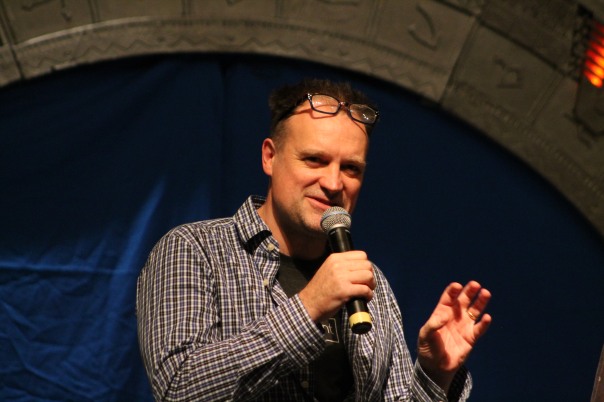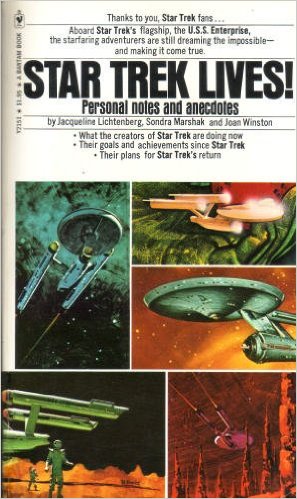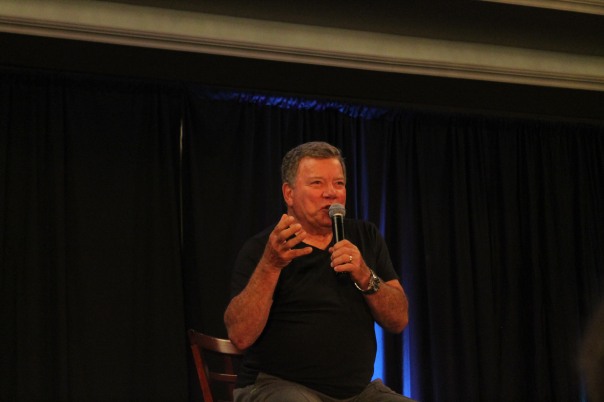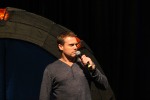Monthly Archives: September 2016
Highlights of the 2016 Stargate Chicago Convention
Last weekend, the final Stargate convention took place at its home at the Westin O’Hare in Chicago. It was a bittersweet occasion: we were all there to celebrate Stargate, and as usual, there was fun, friends, and memories, but this is also the last official Stargate convention for the foreseeable future. This is the last time, it seems, that we’ll have a chance to gather in Chicago to make memories. But memories we did make. Here are some highlights from the convention – some funny, some insightful, and some outright bizarre.

The Westin O’Hare, my Stargate home in my favorite city in the world, Chicago.
- Paul McGillion was going to be Scotty the Engineer
The 200th episode of SG-1 included a Star Trek sequence with an engineer who sounded a hell of a lot like Scotty. They were originally going to have Paul McGillion do it, saying something like similar to “I’m giving her all she’s got, Captain!” During his panel, Paul auctioned off this version of the script, reading his lines allowed in a comic Scotty accent. I asked Paul to write the quote he read from the script when I was getting his autograph, but he couldn’t remember it, so he tried writing Scotty’s quote instead and got that wrong, so what I ended up with is the rather dirty “For Chrissakes, I’m giving her all I’ve got!”:

- Beckett, like Scotty, drinks Scotch
(despite the fact that it was invented by a little old lady in Leningrad). In fact, in a twist so ironic only reality could produce it, I was able to witness the Scottish Paul McGillion autograph my photo with a Scotty quote while drinking Scotch. (the Scotch may also have been responsible for him getting it wrong and turning it dirty)
- Someone tried to buy Joe Flanigan his favorite whiskey
During his panel, Joe mentioned that his favorite drink is Lagavulin Whiskey (but it has to

Joe’s favorite whiskey, as far as I can tell
be sixteen years old!), going on to say that when he lived with Jason Momoa during the filming of Stargate, they went through bottles of it at the pace of frat boys and piled up the bottles against the wall as “decoration.” Consequently, as I was enjoying a “Kawoosh” at the hotel bar, a breathless fan ran up, asking if the bar had a bottle. I suggested she try the liquor store next door, which is the source of much of our felicity at Stargate cons, but they didn’t have it. The hotel bar did, but refused to sell her an entire bottle. I don’t know whether Joe did eventually get his whiskey, but I was touched (and entertained) by the gesture.
- The special drink menu
Speaking of alcohol….the Westin O’Hare, which is like a home away from home for me, put together a special drink menu for the convention. As overpriced as the drinks were, I must admit the “Kawoosh” was delicious, though the bright-green Teal’c’s Margarita did leave something to be desired.
- Chris Judge likes big boobs and he cannot lie
I’m not sure I know where to even begin explaining this one (or if, as an aspiring academic, I should be putting it on the internet) It all started when Chris Judge (whose biceps are, like Jason Momoa’s, the size of my face) was asked about his workout routine. He mentioned that he has to lose some weight for an upcoming role, in which he plays a trans superhero, and then segued into talking about his costume for the role. He’s had costume fittings, and was asked things like “what size boobs would you like?” As far as I recall, he jokingly said that he wants big boobs, and it all went from there. To compound this hilarity, there was a wedding at this Stargate con, with a bachelorette party the previous night, which of course meant that there were lots of NC-17 items floating around, like a headband with boobs on it, which Chris Judge was wearing while signing autographs (though with my lack of observation skills, I didn’t notice them during my autographs).
But that, my friends, is not the end of the story. After the hilarity of his panel, I asked Chris Judge to write something about boobs when I was getting his autograph. He looked at me and went, “you want me to sign your boobs?” and to this day, I don’t know whether he’s joking or not. I mentioned that while I’d be happy to allow him to, I don’t think Creation Entertainment would take a similar view, which is how I ended up with the following autographed photo (in which Teal’c enigmatic smile perfectly matches the words, methinks):

- He also likes ridiculously snazzy pants:
I just don’t have words. Only Chris Judge could pull off those pants and still be able to look slightly terrifying.

- I got my Atlantis control crystal signed
It forms a nice collection with the isolinear chip that LeVar Burton signed. Now I just need Colm Meaney to complete the collection…

- Someone “borrowed” my David Hewlett photo op idea from a couple years ago
A couple years ago, I did a photo op with David Hewlett in which I brought a lemon (which, when I was purchasing it at 7-11, is the reason I was recognized by a bunch of other Stargaters from the con) and had him react to it. A couple new friends did something similar this year, involving a lemon and an epi pen:

- Everybody crashed everyone’s panels
This is a pretty common occurrence at Stargate cons; the atmosphere is extremely laid back, and there’s always a lot of stars autographing in the vendors’ room, which is right next to the theatre. This means that, from time to time, one of them will come in to randomly join a panel that’s happening and then just not leave. In particular, David Nykl crashed David Hewlett’s panel, and we got some Rodney and Zelenka banter onstage and firsthand:

They look so much like their characters in real life, it’s a little freaky.
David DeLuise also crashed Chris Judge’s panel to admire his biceps:

I feel ya, David, I feel ya…
- “Can You imagine Putin as a Klingon?”
A literal quote said by Joe Flanigan. The context was talking about villain characters that the heroes are forced to work with, like the Klingons, who were the Russians on Star Trek during the Cold War. Yes, Joe, I can indeed imagine Putin as a Klingon.
- A Stargate wedding!
Last year at the Stargate convention, Danni proposed to Bri; they’re both Stargate fans, and met at the Stargate con, so it seemed like the perfect place to propose. This year, they had their wedding at the con, complete in costumes and with a little bit of roleplay.
Daniel dressed as Daniel Jackson, while Brianne dressed as her fan-fiction character, Dr. Adrienne Rowan, and everyone else wore thematic outfits as well. The wedding was also a skit re-enacting those characters’ wedding in her stories, and made to look like a traditional Jaffa wedding. What made it even more realistic was Eric Avari (who played Sha’are’s father, Kasuf) giving an impromptu blessing in Egyptian that he had learned for the show. All in all, it was ridiculously beautiful – especially the vows. They also managed to mount a pretty life-sized Stargate on the stage, which formed an excellent backdrop for the rest of the convention, though I heard that lots of duct tape was involved in making it actually stand up. I suggested they ask David Hewlett for help, who reputedly is basically a geek of Rodney McKay proportions.

The beautiful couple
12. Michael Shanks can make about 20 bazillion facial expressions in one minute
I could upload them all to this blog, but then I’d crash WordPress. I have about 300 photos of Michael Shanks, and I swear, every single one of them has a different facial expression. I don’t know how he does it. Here’s a taste….
13. David Nykl and Joe Flanigan talked about the nature of television.
One of the great pleasures of conventions for me as an academic is when industry insiders talk about television, media, and fandom, because they always provide a unique insider’s perspective. This con did not disappoint in this department. David Nykl talked about how movies today are a dime a dozen, and usually full of explosions. Television, on the other hand, is special, he said: it has a fanbase, and is in people’s living rooms and kitchens every week, building rapport. In fact, today TV might even be better and more important than movies. Joe Flanigan pointed out that sci-fi has a loyal fanbase that not even regular popular shows have. It’s a fanbase that Hollywood is out of touch with: they produce lots of sci-fi, but don’t understand the fandom. This is something that’s impressed me at every Stargate con I’ve attended: the actors really seem to understand, appreciate, and approve of fandom and all its creativity (fan fiction included). They get fandom and sci-fi, and many of them (like David Hewlett) are also huge nerds.
14. “Leadership….”
This was the phrase with which David Hewlett began his panel and a running gag throughout it. He also mentioned that the hotel the con was in was hosting a leadership conference that he considered crashing just for the hell of it

“Leadership…..”
- “What Would McKay Do?”
When asked what advice Rodney McKay would give if he ever did have a chance, David Hewlett thought about it for a while, then said, “whenever you find yourself at a juncture and don’t know what to do, ask yourself, What Would McKay Do?” Of course, he followed it up with “run away and hide, probably.”
- I gave Joe Flanigan a hard time about his character “Kirking around.”
Joe was asked about whether a Weir and Shepard romance was intended and whether there was any sexual tension there. After confirming that this was indeed the case, Joe complained that his character didn’t get nearly enough romance, and (unless I’m recalling this incorrectly) made mention of Captain Kirk’s romancing of the women of the galaxy. After which I pointed out to him when I was getting his autograph that Kirk didn’t actually Kirk around. Then again, Joe confessed that he never really got into or watched the original Star Trek, but it’s okay, I forgive him.
- David Hewlett and David Nykl discovered official, authorized Stargate fanfic
At one point during his panel, David Hewlett was asked what he thinks of fan fiction (which he approves of, by the way, but more on that later). He mentioned something about how Stargate should get some fans to write authorized fanfic, only to be told that, hey, it exists, and the authors who write it are just outside. One of them got to come up onstage, and David was presented with a set of Stargate books. Naturally, he and the other David opened them to look for their characters. Zelenka was easily found on the first page David Nykl flipped to, but poor David Hewlett couldn’t find any mentions of Rodney.
…And seventeen seems like a good number to end on, as that’s the number of seasons the Stargate franchise had. I’ll be writing a bit more about this convention (and in particular, on the actors’ thoughts on fan fiction), but for now, I just wanted to celebrate this last hurrah of Stargate in Chicago by preserving some of the best memories.
(All photos by me)
Happy 50th Birthday, Star Trek!
Fifty years ago today, Star Trek came into the world, airing its first episode, “The Man Trap.” In the half-century since, it has had an almost unprecedented effect on every aspect of human existence. There are, perhaps, not even words enough to express the power of this little space Western from back when color televisions were a rarity.
On this momentous day, I thought it might be appropriate to look back at the effect Star Trek‘s creators and fans thought it could have – and how it compares to the effect it has had. In 1975, three fans – Joan Winston, Jacqueline Lichtenberg, and Sondra Marshak – published Star Trek Lives!, a momentous piece of fandom history, which gives a fascinating glimpse into the attitudes towards science fiction, Star Trek, and its influence almost fifty years ago.

Available only secondhand on Amazon, but truly a treasure of insights.
In particular, long before the 50th anniversary, Leonard Nimoy suggested the very way in which Star Trek might impact human society: (the following is quoted in Star Trek Lives!)
I think that science fiction has always been not only a bridge between the present and the future, but a scientific-motivator for the future. I think that much of major scientific movement started with science dreamers – somebody who’s dreaming science fiction, what he dreams is s-f. Now he may or may not be a science fiction writer, a dramatist; or he may read science fiction by a science fiction writer that causes him to think about the possibility of accomplishing physically the things the science fiction writer has dreamed about. So obviously a bridge in that sense.
Nimoy mentions something that scientists, science fiction fans, and scholars have long pointed out: that science fiction often not only becomes, but also influences and shapes, science fact, and it would be difficult to find a work of science fiction of which this is more true than Star Trek. It would be impossible to name all of the technologies, all the discoveries and inventions that are due to a fan of Star Trek watching the show and being inspired to try to create its technology or go into the sciences.
This was something that fans of the show recognized less than a decade after it aired. Following Nimoy’s quote, the three fans write:
Since we spoke with Mr. Nimoy, The Smithsonian National Air and Space Museum has begun to collect Star Trek fan-produced material to check out this theory. How many young fans of today will be historically significant scientists of tomorrow? Fifty or a hundred years from now, the Smithsonian may be able to evaluate Star Trek’s impact on modern science.
This quote is serendipitously a-propos: it’s been fifty years, and there are concrete examples and literal answers to the question posed above. In fact, at the recent Star Trek: Mission New York convention that celebrated Star Trek‘s 50th anniversary, one of the absolute best, most inspiring, and most breathtaking events was a panel of four NASA astronauts, engineers, and scientists:
Kjell Lindgren, NASA Astronaut
Michelle Taller, Deputy Director of Science Communications
Dave Lavery, Program Executive for Solar System Exploration
Jeffrey Sheehy, Senior Technical Officer
When asked, each of the above admitted that science fiction directly influenced their choice to pursue a career in the STEM fields and explore space. That choice, in turn, helped transform science fiction into science fact, creating the bridge to the future that Leonard Nimoy spoke of. These are people who have been to space, who have worked on the Mars rovers, who have helped us understand the solar system. And they are Trekkies; in fact, while speaking, one of them mentioned James Kirk’s birth date without missing a beat. Their innovations are not, as far as I know, in the Smithsonian (which does, however, currently house the model of the original Enterprise used for filming the show); instead, these innovations – inspired by Star Trek – are literally exploring Mars and discovering the universe beyond our little planet.

The Enterprise on display at the Smithsonian
Roddenberry jokes in the preface to Star Trek Lives that “we suspected there was an intelligent life form out there, and we aimed to use our show to signal some of our thoughts to them.” Perhaps, in a Galaxy Quest-esque way (and the endless number of parodies and adaptations is yet another of Star Trek‘s myriad influences), the waves of Star Trek have indeed reached distant planets with intelligent life. But even if they haven’t, Star Trek‘s impact goes quite literally beyond our planet, perhaps beyond our solar system, and definitely beyond anything anyone could have imagined. So, on a day when we celebrate such a momentous show, I want to end with the words of Gene Roddenberry himself, who recognized the immense power that a story and a set of ideas could have:
That ugly little advertising box we presently call television has an awesome potential for moving the hearts and minds of people. Whatever the reasons for the Star Trek fan phenomenon, its very existence is evidence that television is too powerful a thing to remain much longer the almost exclusive property of purveyors of ales, cakes and ointments.
If television can bend minds and capture imaginations while in its present rather primitive stage of development, what of tomorrow? It seems to me necessary that we begin to use today’s telecommunications marvels to draw all of humanity together in a free exchange of ideas, art and knowledge…or its great mind-bending potential will be used by a powerful few to own and manipulate the rest of us.
William Shatner and LeVar Burton Talk Science, Mythology, and Sci-Fi
With the exact date of Star Trek’s 50th anniversary coming up shortly on September 8th, celebrations of what started as a strange little show with low ratings are in full swing. Star Trek: Mission New York promises to take over Labor Day weekend with a slew of panels, screenings, autographs, and other festivities, and this past weekend, Cherry Hill hosted a Star Trek 50 year mission tour convention.
Though much of the aforementioned convention was based around entertainment (with celebrity Q and A’s, a Rat Pack performance on Friday night, and karaoke), there was also intellectual stimulation to be had for the sci-fi nerd, including panels on Women in Star Trek, Star Trek and Shakespeare, and a discussion of the upcoming Star Trek: Discovery. Two actor appearances – William Shatner and LeVar Burton – also stood out; both spoke passionately about science fiction and science, speaking of its potential and of its influence.
William Shatner began his panel by talking about what projects he’s been working on lately, but this quickly segued into a short talk about the nature of science itself. His most recent project – titled The Truth is in Our Stars, and slated for release in December – is a series of interviews with scientists influenced by Star Trek, including Michio Kaku and Stephen Hawking (whom he interviewed just last week). Shatner spoke with great passion about the questions science asks – what are we all doing here? What are we? What the hell does it all mean? These are the same questions that mythology attempts to answer: why are we here? What is the meaning of life? And science fiction, as he has so often previously stated, is deeply mythological, in taking these metaphysical questions and giving them realistic answers. He made some short quips about the answers to all these questions – “we’re all vibrating!” he summarized, after snarkily suggesting that scientists talk for fifteen minutes but have no better answer to the above questions than anyone else.

William Shatner speaks passionately about science and science fiction
But this snark was quickly replaced by deep seriousness. He looked almost enraptured as he spoke about his experience with Stephen Hawking and Michio Kaku, telling the story of how, once, when he was speaking about the mathematical beauty of music with Michio, he asked him, “Kaku, what instrument do you play?” Michio pointed to his head, his brain – which, almost ecstatically, Shatner suggested was an instrument like any other, capable of touching the beauty of the universe in some way. He spoke also of Stephen Hawking, who lives in a body that doesn’t work – but his mind does. He had similarly asked Hawking once, “what instrument do you use?” to receive a similar answer – his mind.
Shatner also spoke about the very real impact of – and crosspollination between – Star Trek and real science, and, in particular, space exploration. He went back to the late 60s, when, he claimed, the achievements of the space program brought in ratings to Star Trek. These ratings, in turn, inspired scientists and the continuation of the space program. He even suggested (citing an unmentioned source) that it was the influence of Star Trek that caused Congress to vote for funding for the space program, calling Star Trek “instrumental” in getting money allocated for the space program. (as a side note, William Shatner is what one might consider a primary source on the topic, given that he was at the center of things during the Space Age of the 1960s; at the same time, I have no written sources at this time to back up his claims).
In short, my admiration of William Shatner (which was already great) has grown even more with this conversation. He seems to have a deep respect for both Star Trek (whose ideas and philosophy he said he admired, even producing a moral/political reading of Star Trek’s funniest episode, “The Trouble with Tribbles”) and science (whose potential he spoke about with visible admiration, ending his appearance with words of admiration for the brilliant young scientists currently working at NASA that he’s interviewing for his project).
In short, when he claimed “I’m Captain Kirk!” halfway through the panel, he wasn’t joking – he seems to have James T. Kirk’s openmindedness and sense of wonder about both the world around us and the fiction that describes it.
This influence, which Star Trek had on so many lives, also touched LeVar Burton, who played Geordi in Star Trek: The Next Generation. While Shatner had mentioned more abstractly the various influences Trek had had on scientists, inspiring them to pursue science, LeVar spoke of the way that the Original Series (of which he was a huge fan) showed him that he had opportunities as a young black kid- something he loved incarnating in Geordi, a character with a disability who is still able to pursue his passion.

LeVar talks about the inspiration of Star Trek and the power of science fiction
He also wholeheartedly admitted that he’s a science fiction nerd, because science fiction invites us to contemplate “what if” – which, he said, are two of the most powerful words in language. He also called imagination a superpower- a thought process that essentially enables us to travel through time and space in a way that no other species can. And storytelling is what connects us to the imagination, that brings it to life. In short, though he didn’t say it in those words exactly, he spoke of science fiction as similarly mythological: just like Shatner suggested that sci-fi lets us answer the question of “what’s out there?”, LeVar suggested that it lets us ask “What if?” (LeVar also mentioned as I was getting his autograph, on the very same isolinear chip that he refused to fix for me, that his favorite science fiction author is Octavia Butler).
They both spoke about a topic that’s been of deep interest to me in my research: the relationship between storytelling and science, as well as the way that our penchant for narrative extends beyond the obvious – literature. Over the summer, I had the chance to read The Storytelling Animal, which suggests that storytelling – that is, the ability to ask “what if” and work out the consequences of potential scenarios – is not only programmed into our brains, it’s how we have survived as a species. That is, not only is the imagination a superpower, it is a fundamental survival skill of our species. And science fiction, in its incorporation of science, is particularly apt at working out those consequences and projecting hypothetical scenarios, giving it the power to answer not only “what if?” but also the more mythological question of “What for?”
In short, LeVar and Shatner both spoke with amazing understanding about a topic that I’ve been focusing on as an academic for some time now; at the same time, they gave these talks at a venue that more than proved them right: a 50th anniversary celebration of Star Trek. Star Trek really does showcase the mythological, magical power of storytelling in general and science fiction in particular.













